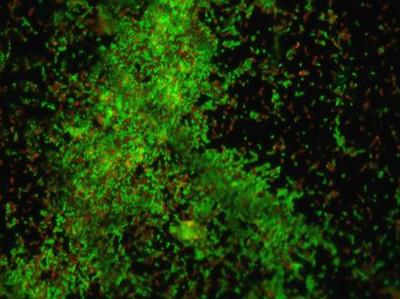The BioliSME II project funded by the European Commission through the 7th Framework Programme (FP7) comprises a consortium of 6 partners from 4 countries: University of Southampton and Photek (UK), 40-30 (France), Dublin City University (Ireland) and ainia centro tecnológico and Betelgeux (Spain).

In the previous BioliSME project, also funded through FP7, a sensor device was developed to collect and detect Listeria monocytogenes on food industry surfaces. Following the success of BioliSME, BioliSME II was approved and its aim is to demonstrate, validate and promote the prototype developed in BioliSME.
At the University of Southampton, Dr Salomé Gião and Prof Bill Keevil have been contributing to the improvement of the prototype with their expertise in biofilm formation and detachment. They have also been testing the prototype to detach lab grown biofilms of different ages on typical food processing surfaces for successful detection. In the last part of the project the Southampton team will participate in field trials in which the prototype will be taken to food processing factories across the UK where L. monocytogenes can potentially be present. Samples will be collected and detected using the prototype and results compared to traditional methods of swabbing surfaces to collect cells followed by culture to identity/quantify L. monocytogenes.
L. monocytogenes is a pathogen that is transmitted by food, in particular ready-to-eat (RTE) products. The contamination of RTE is predominantly due to contact with contaminated surfaces where those products are prepared or handled. The early detection of L. monocytogenes on surfaces will alert the need for decontamination with a consequent decrease of cross-contamination risk. A recent press release (https://www.southampton.ac.uk/mediacentre/news/2014/jun/14_104.shtml) by the University of Southampton triggered much interest from the media as food safety is of great concern to the general public and this pathogen has a high mortality rate. Therefore there is great importance for the development and commercialisation of this prototype to improve public health safety.
Links to external websites
The University cannot accept responsibility for external websites.
